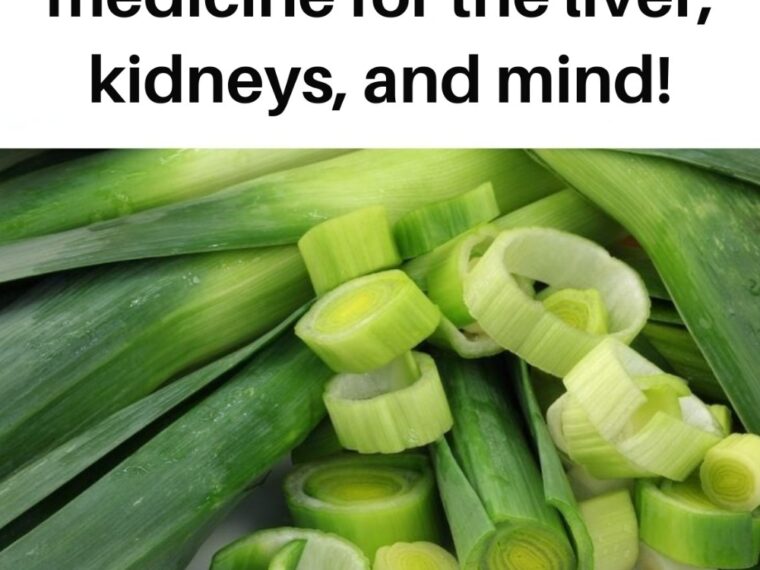In the world of natural remedies, few vegetables rival the incredible medicinal value of beetroot. Often overlooked, this vibrant purple root is not only a nutritional powerhouse but also a gentle and effective detoxifier for the liver and kidneys. Rich in antioxidants, nitrates, and essential nutrients, beetroot has been used in traditional and modern medicine to support organ function and purify the blood.
From detox cleanses to boosting circulation, beetroot plays a significant role in natural healing protocols. Whether consumed raw, juiced, or cooked, beetroot delivers a wide range of benefits that make it a must-have for anyone looking to care for their vital organs holistically.
This article will guide you through a step-by-step process to prepare a simple, healing beetroot tonic that promotes liver and kidney health naturally. But first, let’s understand why beetroot is so beneficial.
🧠 Why Beetroot is Nature’s Medicine for Liver and Kidneys
Beetroot (Beta vulgaris) contains unique phytonutrients that support detoxification and regeneration. Let’s break down the top ways it benefits these crucial organs:
✅ 1. Cleanses the Liver
The liver is the body’s natural filtration system, and beetroot supports its function in multiple ways. The compound betaine, found abundantly in beetroot, helps protect liver cells and promotes fat metabolism—a key process in preventing and reversing fatty liver disease.
Beetroot also increases the production of detoxifying enzymes like glutathione-S-transferase, enhancing the liver’s ability to neutralize and eliminate toxins from the body.
✅ 2. Improves Kidney Function
Your kidneys filter about 50 gallons of blood daily, removing waste and maintaining fluid balance. Beetroot helps this process through its:
- Antioxidant content, which reduces oxidative damage to kidney tissues.
- Natural nitrates, which support healthy blood flow and pressure—vital for kidney function.
- Diuretic action, which promotes urine production and the flushing out of toxins, salts, and excess minerals.
✅ 3. Fights Inflammation
Inflammation plays a role in most chronic diseases, including liver fibrosis and kidney dysfunction. Beetroot is loaded with betalains, anti-inflammatory pigments that combat oxidative stress and may slow disease progression.
Studies have shown that beetroot juice reduces markers of inflammation, such as C-reactive protein (CRP), in people with high blood pressure and metabolic syndrome.
✅ 4. Boosts Blood Flow
Healthy blood flow ensures your organs receive adequate oxygen and nutrients. The natural nitrates in beetroot convert into nitric oxide, a compound that dilates blood vessels and improves circulation.
Improved blood flow means better nutrient delivery to the liver and kidneys, allowing them to repair and regenerate more effectively.
🌟 Additional Health Benefits of Beetroot
Aside from liver and kidney health, beetroot supports many other aspects of wellness:
❤️ Cardiovascular Support
Beetroot is well-known for lowering blood pressure. Studies have shown that a single glass of beetroot juice can reduce systolic blood pressure within hours. Over time, this helps reduce the risk of heart attack and stroke.
🧠 Brain Function
Nitric oxide also enhances blood flow to the brain, improving cognition and memory—especially important for aging individuals.
💪 Athletic Performance
Beetroot’s nitrates improve muscle oxygenation, reducing fatigue and improving endurance. It’s commonly used by athletes before training or competitions.
🍽️ Digestion and Gut Health
The fiber in beetroot supports healthy bowel movements and provides fuel for beneficial gut bacteria, improving overall digestion.
🥤 Healing Beetroot Tonic Recipe for Liver & Kidneys
This tonic is easy to make, delicious, and highly effective. It can be enjoyed by nearly anyone as part of a regular wellness routine.
🔹 Ingredients:
- 2 medium-sized beetroots, peeled and chopped
- 1 medium carrot (optional, for taste and added detox benefit)
- 1 small apple (for sweetness and vitamins)
- Juice of ½ lemon
- 1-inch piece of fresh ginger, peeled
- 1 cup filtered water
- A few fresh mint leaves (optional)
👨🍳 Step-by-Step Preparation:
🥄 Step 1: Wash and Peel
Next page





